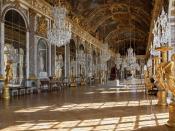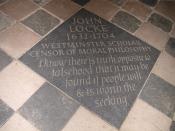Jennifer Pflaumer
The Age of Enlightenment began in the 17th century in England and continued to reach its peak in the 18th century in France and the United States of America. During the Enlightenment many writers used nature or natural laws to explain their ideas of how people should live and what their form of government should be. The writers of the Enlightenment questioned the beliefs of divine right of monarchs and unequal social classes. They held up these beliefs of reason and found them to be unreasonable. Thinkers of the Enlightenment period encouraged European monarchs to make reforms; their theories eventually inspired many American and French Revolutions. The period of Enlightenment thinking produced long term effects that helped shaped history today.
An absolute monarchy is a monarchy that is not limited or restrained by laws or a constitution. Many rulers during the 17th and 18th century believed highly in absolute monarchs.
One prime example of an absolute monarch took place in France under Louis XIVs ruling. During Louis XIVs ruling he had the Palace of Versailles built for himself. It's believed that one entire hallway was compacted with mirrors, just so he could look at himself. The building of the Palace of Versailles put France in an unbelievable amount of debt. That proves the theory that Louis XIV was narcissistic. In document 2, it shows that Louis XIV believed that rulers of absolute monarchs thought they were higher or better than everyone else. As you can see in the painting in document 2, Louis XIV also known as "The Sun King," had an illuminated light shined behind him. This proves the concept that he indeed did believe that he was the best, and that no one could outdo him. In the 17th and 18th century there were many rulers...


